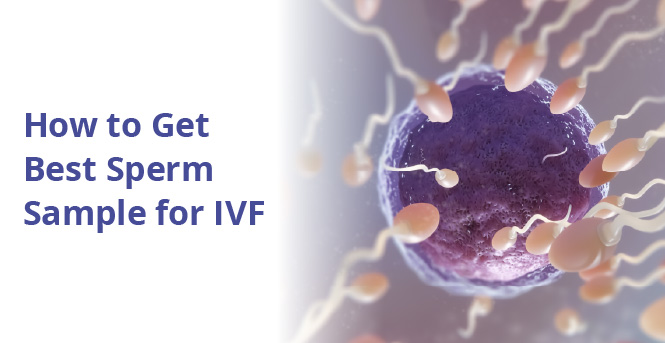
How to Increase Sperm Count Naturally

Table of Contents
- Understanding Sperm Count
- Determining the Health of the Sperm
- Normal Sperm Count for Pregnancy
- Signs of a Low Sperm Count
- Causes of Low Sperm Count
- Causes of Infertility in Men
- Natural Ways to Increase Sperm Count
- How to Increase Sperm Thickness?
- How to Increase Sperm Volume Overnight?
If you are concerned about a low sperm count, it’s important to remember that it’s not the end of the road. A healthy sperm count plays a key role in male fertility, as it increases the likelihood of fertilising an egg. However, even if your sperm count is lower than average, there are natural ways to enhance sperm production and improve fertility. In fact, about 15% of couples experience infertility, and male factors like sperm count contribute to nearly 50% of these cases. The good news is that with lifestyle changes and medical advice, many men see significant improvements in their sperm quality and chances of conception. In this article, we will discuss some evidence-based approaches to naturally increase sperm count and thickness.
Understanding Sperm Count
Before we dive into the ways to increase sperm count, let’s understand what a normal sperm count is. According to the world health Organisation (WHO), a normal sperm count ranges from 15 to 200 million per millilitre of sperm. A count below this threshold is considered low and may be diagnosed as oligospermia.
Determining the Health of the Sperm
The health of the sperm depends on several factors, which include the quality and quantity of the sperm.
- Quantity: As per medical research, if in every ejaculation there are at least 15 million sperm per millilitre, it indicates that the sperms are fertile. Because the more you have, the more likely it is that one of them will reach the egg. Less sperm in the ejaculation might make it difficult to reach conception as there are fewer sperms available for the egg to move ahead and fertilise.
- Shape: If the shape of the sperm is smooth, with an oval head and has a long tail, it clearly indicates that it is a healthy sperm.
- Movement: For a healthy sperm, a good quantity of sperms need to be good swimmers as it signals that they are healthy and fertile sperms.
Normal Sperm Count for Pregnancy
For successful conception, a sperm count of at least 15 million per millilitre is typically considered necessary. While higher sperm counts generally increase the chances of conception, it’s important to note that even with lower counts, pregnancy is still possible, although the likelihood may be reduced.
Signs of a Low Sperm Count
Some signs that may indicate a low sperm count (medically known as oligospermia) include:
-
Swelling or pain in the testicles
-
Decreased facial or body hair
If you notice any of these signs, consult with a doctor to determine if you have a low sperm count.
Causes of Low Sperm Count
Understanding the causes of low sperm count is essential for effective treatment. Several factors can contribute to this condition:
-
Hormonal imbalances: Issues with the hypothalamus, pituitary gland, or testicles can disrupt hormone levels necessary for sperm production.
-
Genetic factors: Chromosomal abnormalities can affect testicular function and lead to low sperm production.
-
Medical conditions: Conditions such as diabetes, cystic fibrosis, or infections like mumps can impact fertility.
-
Environmental factors: Exposure to toxins such as pesticides, heavy metals, and radiation can adversely affect sperm health.
-
Lifestyle choices:
-
Obesity: Excess body weight is linked to hormonal changes, which can reduce sperm production.
-
Smoking: Tobacco use has been associated with lower sperm counts and poor sperm quality.
-
Alcohol and drug use: Excessive consumption of alcohol and recreational drugs like marijuana and anabolic steroids negatively impact fertility.
-
Heat exposure: Frequent use of saunas, hot baths, or tight-fitting underwear can increase scrotal temperature and impair sperm production.
-
-
Age: While men can remain fertile into older age, testosterone levels typically decline after age 40, which may affect sperm production.
Causes of Infertility in Men
Before finding ways to improve chances of fertility, let us understand what causes infertility in men.
- Retrograde ejaculation
This is a condition when during orgasm, the semen enters the bladder instead of coming out through the tip of the penis. There are several reasons that can lead to retrograde ejaculation including, spinal injuries, bladder surgery, prostate, and diabetes.
- Varicocele
It is the enlargement and swelling of the veins which drains the testes. Varicocele is one of the most common cause of infertility that can be reversed. Consulting a specialist can help treat this condition. However, the exact cause of varicocele is still unknown. It affects the quality and quantity of the sperm.
- Weight
Being overweight can affect fertility in several ways, which includes sperm directly affecting the hormonal changes in the body, which may lower fertility in men. Men who have a normal range as per their BMI might have a better chance of fertility than men who are overweight. It may lower their testosterone levels, reduce the quality and quantity of healthy sperms and diminish their chances of fertility.
- Cancer
Cancer is a highly fatal condition, and it can affect the male reproductive system and decrease their chances of becoming a parent naturally. Non-malignant cancer and tumours have been linked with the ability of male fertility. Cancer and tumours treatments like surgery, chemotherapy, and radiation can damage the glands that release hormones related to reproduction.
- Smoking, alcohol, and drug use
The use of tobacco, cocaine, or marijuana may shrink the testicles and reduce the ability of men to produce healthy sperm. These toxic drugs can affect the quality and quantity of sperms for a short period of time.
Consumption of alcohol can affect fertility in men. It may lower testosterone levels, cause erectile dysfunction and reduce the production of sperm. Excessive intake of alcohol may lead to liver damage, thereby affecting fertility in men.
Natural Ways to Increase Sperm Count
Here are some ways in which you can increase sperm count naturally:
Maintain a healthy diet:
Avoid diets high in saturated fatty acids (SFA) and polyunsaturated fatty acids (PUFA) or with an imbalanced omega-6/omega-3 PUFA ratio, as they can negatively affect sperm quality. Instead, aim for a balanced diet rich in antioxidants, vitamins, minerals, and unsaturated fatty acids, as it can significantly enhance sperm health and quality. Some beneficial foods include:
- Fruits and vegetables: Berries, spinach, and broccoli are high in antioxidants.
- Nuts and seeds: Walnuts and pumpkin seeds provide essential fatty acids.
- Lean proteins: Fish like salmon and chicken support overall health.
Take supplements:
Certain supplements such as zinc, vitamins, and coenzyme Q10 may help improve sperm count and quality, particularly for men with nutrient deficiencies.
Exercise regularly:
Engaging in moderate-intensity physical activity helps maintain a healthy weight and boosts testosterone levels which are vital for sperm production. However, note that research also suggests that intense physical training can negatively affect sperm motility (the ability of sperm cells to move forward), morphology (the physical appearance and shape of sperm cells), and concentration (the number of sperm cells per milliliter of semen) . Therefore, moderation is key.
Manage stress:
High stress levels can cause oxidative stress and negatively impact hormone production essential for sperm development. Techniques such as meditation, yoga or deep-breathing exercises can help reduce stress, potentially improving fertility.
Avoid harmful substances:
Quitting smoking and limiting alcohol intake can significantly improve sperm quality. Both substances have been linked to reduced sperm count and motility. Additionally, avoid recreational drugs like marijuana and anabolic steroids.
Get enough sleep:
Aim for 7-8 hours of quality sleep per night to support overall health and hormonal balance. Poor sleep patterns can disrupt testosterone levels and impair fertility.
Limit heat exposure:
Excessive heat can raise scrotal temperature and negatively affect sperm production. Therefore, avoid hot baths or saunas for extended periods. Additionally, do not keep laptops or cell phones on your lap to avoid prolonged exposure to heat.
Wear loose, breathable underwear:
Testes function properly at a temperature that is optimally 2°C lower than the core body temperature. Tight-fitting underwear and pants can increase scrotal temperature, negatively affecting sperm and testosterone production. Therefore, opt for loose, breathable fabrics that help maintain the optimal temperature for sperm health.
Limit exposure to environmental toxins:
Certain chemicals and toxins found in pesticides, plastics, and cleaning products can negatively impact sperm quality. Reduce your exposure by choosing organic produce, using natural cleaning products, and avoiding plastic containers.
Manage underlying health conditions:
Certain medical conditions, such as varicocele (enlarged veins in the scrotum), infections, or hormonal imbalances, can contribute to low sperm count. If you suspect an underlying issue, consult with a fertility specialist who can help diagnose and treat the problem.
How to Increase Sperm Thickness?
To improve sperm thickness, focus on hydration and nutrition. A well-hydrated body produces better-quality semen. Additionally, consuming foods rich in zinc (like oysters) can help enhance semen thickness.
How to Increase Sperm Volume Overnight?
While significant changes overnight are unlikely, you can optimise conditions by staying hydrated before ejaculation and avoiding alcohol or drugs that may impair function if you are going for a sperm evaluation. Here are some quick tips:
- Drink plenty of water the day before.
- Avoid heavy meals that may cause sluggishness.
- Get adequate rest to ensure optimal body function.
- How to improve sperm quality?
To enhance sperm quality:
- Maintain a balanced diet with essential nutrients.
- Avoid overheating the testicles by wearing loose-fitting underwear.
- Limit exposure to environmental toxins (e.g., pesticides).
The Impact of Diet on Serm Health
Did you know that men who consume a diet rich in omega-3 fatty acids can experience up to a 50% increase in sperm count? Foods like salmon, walnuts, and flaxseeds are excellent sources of omega-3s, which are known to improve blood flow and hormone levels, ultimately enhancing sperm production.
Pro Tip for optimal Sperm Production
Zinc is key: Zinc plays a vital role in testosterone production and overall reproductive health. Men should aim for at least 11 mg of zinc daily. Foods high in zinc include oysters, pumpkin seeds, and lentils. Incorporating these into your diet can significantly boost both sperm quality and quantity.
Does Drinking Water Increase Sperm Count?
While there is no direct evidence that drinking water specifically increases sperm count, proper hydration is essential for overall health, including reproductive health. Staying well-hydrated by drinking water throughout the day and avoiding sugary drinks can support optimal sperm production.
Zero Sperm Count: How to Increase
Zero sperm count (azoospermia) is a serious condition that requires medical evaluation. Treatment options may include:
-
Hormonal therapy
-
Surgery to correct anatomical issues
-
Assisted reproductive technologies like In Vitro Fertilisation (IVF) with Intracytoplasmic Sperm Injection (ICSI)
Consulting with a healthcare provider specialising in male fertility is crucial for personalised treatment options.
The Bottom Line
Improving sperm count and quality involves a holistic approach that includes dietary changes, regular exercise, stress management, and avoiding harmful substances. By adopting these practices, you can support healthy sperm production and improve your overall fertility.
Remember, every journey to parenthood is unique. With the right knowledge and support, you can take proactive steps to enhance your fertility and increase your chances of conceiving.
A Word from the Expert:
It’s natural to feel overwhelmed and anxious when you’re facing fertility challenges. But know that you’re not alone. Many men go through this, and there’s a lot of support available. Talk to your doctor, a fertility specialist, or a counselor. They can help you understand your options and navigate this difficult time.
Our Fertility Specialists
Related Blogs
To know more
Birla Fertility & IVF aims at transforming the future of fertility globally, through outstanding clinical outcomes, research, innovation and compassionate care.
Had an IVF Failure?
Talk to our fertility experts

 Our Centers
Our Centers

















